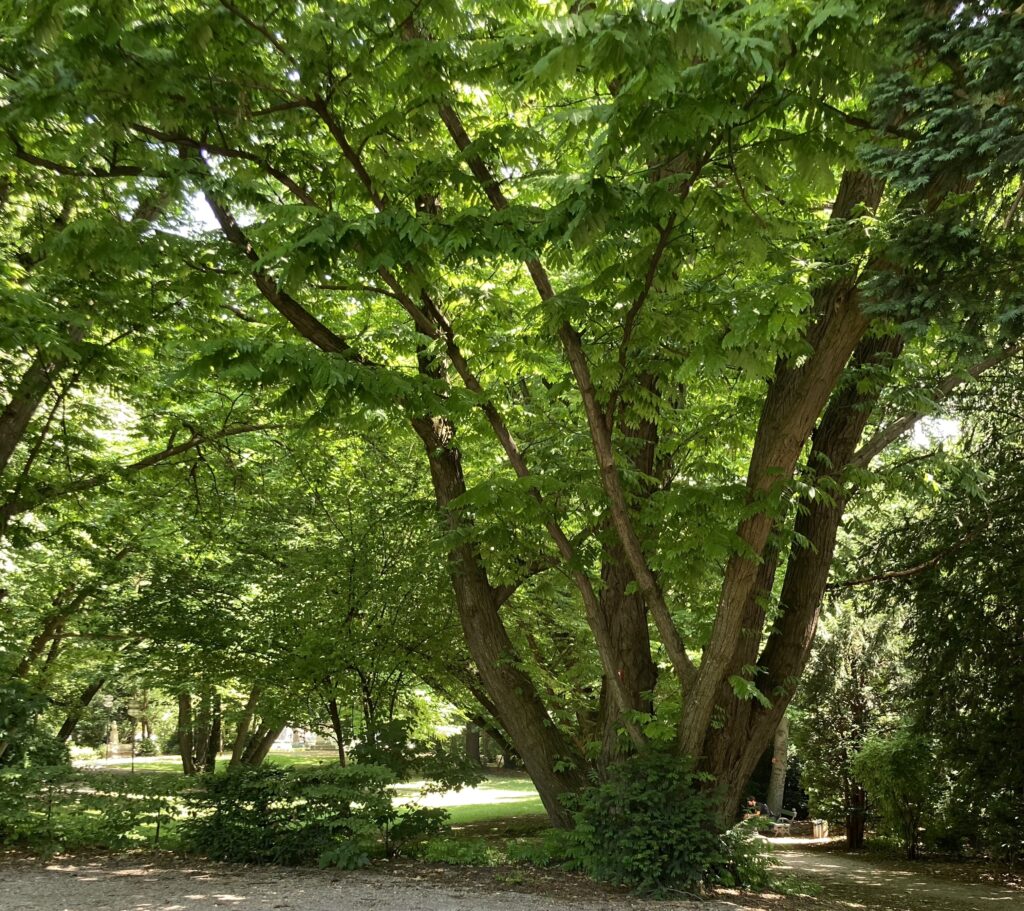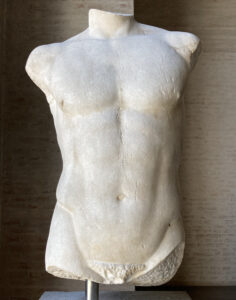Update 15 December: I have a January position, but not at Seneca Polytechnic.
This announcement was made on Facebook recently, but for the sake of clarity I am announcing it here also: I will not be teaching at Seneca Polytechnic Institute in January (For further clarification: I was not fired but it was also not my decision.)
I graduated from Seneca’s Radio Broadcasting program in 2005, with the teaching offer coming a decade later. It was the first time I’d taught in a formal classroom, the first time I’d stood in front of a group, having only taught piano one-on-one for many years prior. I’d been an Associate Producer at CBC Radio but I wasn’t sure how to transfer that knowledge, or indeed, anything I’d gained from working so long in the worlds of writing, chasing, interviewing, recording, and producing. I remember the stomach-churning nerves of that first class, repeatedly losing my train of thought and looking down to my notes for reassurance. What am I doing here? Who do I think I am?! Fraudster syndrome is not a new experience for me, but I remember how sharp its edges felt that day in January 2015. It was a sign of things to come, particularly when I returned to writing within the classical world.
Despite the nervousness that day, I’d made my mother proud. It felt good to have the approval of the person who had been my most ferocious critic. The praise came with an addendum (“I told you you should have gone to teacher’s college all along…”) – and was short-lived. I became ill (there were suspicions of Crohn’s disease, not ultimately found) and I couldn’t finish teaching the term. This was the time before Zoom classes. I couldn’t do a requested opera review for The Globe & Mail during that time either, and I remember crying over everything one grey early-spring afternoon, bemoaning the inertia of an existence that couldn’t – wouldn’t, refused – to move forwards, despite every hard push and expensive effort. Living abroad, graduate school, New York (twice!), tutoring, teaching, workshopping, networking, writing – so much writing – balanced with looking after my mother, and just when it seemed things were finally, at last, moving… kaboom, by accident or design, the wheels stopped turning. Sometimes I wonder if my illness was a reaction to her obvious decline. I remember her tiny frame perched just outside the doorway of my bedroom after one of my surgeries, her saucer eyes peering in. She would be dead four months later. I remained, barely, and the school term was over.

Photo: mine. Please do not reproduce without express written permission.
I would go on to teach at Seneca every winter thereafter, and subsequently instruct Media And Communications students at the University of Guelph Humber every autumn. All those things I pushed for and lived through I now use, in one form or another; everything had a purpose, and continues to. The stress of teaching can be intense at points, but what job comes without that? Creativity, logic, and process are partners in the classroom. To borrow Byron’s line from Don Juan (written in a highly different context), “explaining my explanation” is something I think about a lot, as much as for teaching as for writing. But such educational basics (including standing in front of a group) don’t scare me anymore. Communicating, after all, is what musicians (actors, writers, painters, playwrights) also do, and like an artist I try to be both creative and chewy in my delivery, a mix of the blunt, the bizarre, the theatrical, a kind of Bernsteinian flight of ideas and history, approach and practice. (I don’t think Lenny would mind my taking inspiration from his speaking/lecturing style.) Encouraging young people to explore their own talents, demonstrate a capacity to meet real-world demands and exercise their curiosity has been a special blessing for someone who never had children of her own. I like students; I like their energy. Seeing (and sometimes hearing) the lights go on – formulating unique thoughts and ideas, planning and dreaming, standing outside (creatively, intellectually, mentally) the influence and validation of the known – communication!
At the moment I am in the midst of term-end grading. It is odd to think that in a few days, there will be no classroom to go to, no externally-imposed schedule to keep, no student things to grade, no new slate of new faces to greet. January will be a big empty slate for the first time since 2014. “Turn and face the strange” indeed. Exacerbating this surreal feeling is a (big) birthday on Thursday. Maybe pushing for the things society tells us we “should” have by a certain age isn’t as effective a recipe for contentment as acceptance of and gratitude for present circumstances. True, there is no castle in the sky, no Prince Charming, no sharing the washing-up or small joys or exasperated sighs. I am my own roommate, and it’s not a question of “strange” or “fail” or even “like”; it simply is.
Recently I had a conversation with someone working in the European classical industry who noted that while I seem “split down the middle” in terms of my professional life, I really should give serious thought to pursuing the things related to the classical self, the self who must try to stay quiet amidst the focus, that side I can barely silence, even (or especially) in lectures. Of course my readers may have noticed there’s been little published here the last few months – there’s been so little energy to do so. But I am called The Opera Queen, FFS! I should have written about Callas’s birthday! I should have written about Turandot(s) and Don Carlo! I should have written tributes to Marlena Malas and Pauline Tambling! I should have asked for interviews with x-y-z! Alas, time and energy are finite at this point (this is where nightly cooking/washing-up help would come in handy) and lately it’s gone to my students, and I don’t really mind, but I worry my readers do.

Torso of Apollo; copy, probably after a statue of Onatas from Aegina (ca. 460 BC). Taken at the Glyptothek Munich. Photo: mine. Please do not reproduce without express written permission.
Rilke’s 1908 poem “Archaïscher Torso Apollos” (Torso of an Archaic Apollo), with its striking paradox of the complete and the incomplete, comes to mind often, and not solely for its famous last line. Lately I am less statuesque and immobile, more messy and unsettled, as if I’m being shoved onto an empty dance floor in naught but socks, sweats, and dishevelled hair; all I can do is dance with myself – figure out next steps, tiptoe through financial terror, pirouette around expected hardship, kick at the doubts and do jazz hands to the doubters. Maybe I know the steps better than I think, else I am a good improviser. It’s nice to move in winter anyway; something about the season’s stillness makes things easier, its cold temperatures offering a brisk clarity. I am looking forward to long walks in the snow (if it ever comes) and listening to Sibelius, Strauss, Shostakovich… and silence.
In the meantime, I’ve an interview posting soon featuring Irish artist Gavin Friday, the driving force behind a new animated version of Peter And The Wolf done with childhood friend Bono – an update to their 2003 project for the Irish Hospice Foundation. Culture and rebellion, change, theatre, performance; creativity; shifting identities: Mr. Friday is every bit opera. The feature is posting prior to the short’s broadcast on Irish television December 25th.
Until then, enjoy the eierpunsch, dance with yourselves, and most importantly: remember the c-word. My students, I think, already know it by heart.

